Learn how to care for chickens in winter with this easy tutorial. Follow these tips and tricks for keeping your flock safe and warm over the winter months.
This post is sponsored by Tractor Supply
Today, I want to share with you some ways to prepare your chicken flock for winter.
We have been keeping chickens year-round for over 5 years now, but this will be the first winter on our new homestead with chickens. I shared a video back in spring when we first got our dozen baby chickens and showed you how we built our chicken coop, so if you’re just starting a flock, you’ll want to check that out!
I’ve had a ton of questions recently regarding how we keep chickens over winter. The reason for that is that in some climates, winters can be pretty harsh, but it doesn’t have to be hard to keep your chickens healthy and happy when it’s cold and wet outside!
Tractor Supply has all the supplies you will need to care for chickens in winter, and in fact, once you’ve got a flock started, it’s a great idea to start adding to your chickens in fall, and you can get your fall chicks there, too. Tractor Supply’s Chick Days are going on now until mid-September.
Chickens are one of the best first things to start adding to your homestead. They are pretty easy to take care of, and supply you with eggs and meat for the kitchen. Not to mention, they love kitchen scraps, helping keep trash down.
There really isn’t much not to love about chicken keeping, and you can do it anywhere. Whether you have acreage or even live in the city (always check city ordinances), chickens are such a fun way to start homesteading.
Caring for chickens changes a little bit during the winter, but as long as your chickens have adequate shelter, food, and water, they are good to go, much like the spring, fall, and summer.
So let’s dive in and talk about how to keep chickens in winter.
Backyard Chickens: How To Care For Chickens In Winter Video
How To Care For Chickens In Winter
Do chickens need a heat source in winter?
One misconception for keeping chickens in winter is that you need a heat source. Chickens have their own way of staying warm and getting ready for the winter. Since the weather steadily declines, they can adapt to that. Adding a heat source makes them unable to do that, and interferes with their natural abilities to be more cold-hardy.
Now, if you live somewhere with really harsh winters, it is recommended to use a heat lamp, but only to heat up to freezing.
Egg Production During Winter
Chickens do slow down their egg production during winter, and you can add artificial light to simulate the longer days of sunlight.
It is recommended not to add more than 10 hours of artificial light.
Chickens do molt, usually about 1 year after they start laying. Many times, that will happen in the winter or near to it, and you may experience a decline in egg production because of it.
Keeping Chickens Dry In Winter
Proper Ventilation in The Coop
It is really important to make sure your coop has proper ventilation. If it doesn’t have good ventilation, then condensation can collect in the coop and leave it wet. If any of the chickens get wet, they can freeze.
Check For Leaks
Make sure the chicken coop, the roof, and nesting box area are free from leaks so the chickens stay warm and dry.
Keep Water From Freezing
We do use a heated waterer that we picked up from Tractor Supply to make sure the chickens always have fresh water.
If you don’t purchase a water heater, you can go out every day and chip away the ice, make sure nothing is frozen, and add hot water. Change the water often. But you will need to check it a lot to make sure nothing is frozen. Purchasing a heated water or bucket is a much easier way to ensure fresh water is available.
Pine Bedding
Make sure you have plenty of bedding in the coop to keep it dry and keep the eggs clean. Extra bedding also helps to add another layer of protection from the elements during the winter.
Dust Baths
It is important to add an area to the coop for dust baths. Dust baths help keep chickens healthy, clean, helps remove parasites like lice, and can help keep their feathers water resistant.
Monitoring:
One of the most important things you can do is monitor your chicken’s behavior. As long as they are moving about and acting normal, they are probably just fine! They naturally fluff out their feathers or stand on one foot to stay warm.
Even though your chickens may be out in harsh winter conditions, with a bit of preparation, they are quite hardy if cared for properly. Making sure their basic needs of food, shelter and water are fulfilled will ensure a happy and healthy flock in spring time.
Benefits To Adding Fall Chicks
Most people think spring is the perfect time to get chicks, but adding chicks in the fall has many benefits.
- Early Layers: Getting chicks in the fall means you will have layers in early spring. They will mature through the winter (when egg production is down anyway) and be ready to lay in the spring.
- Delayed Molting: If you buy fall chickens, this means that they won’t be molting until closer to winter, and won’t be molting during the high production times of the summer.
- Spring Pest Control: Chickens are great at keeping the bugs down. Our property has a ton of mosquitoes and ticks, and chickens do a great job at keeping the pests down, especially if you have a chicken tractor, like we do. We move it around everyday.
- Weather: During Spring Days, when we got our first round of chicks, it was February/March, which can still be pretty cold in our area, so we had to keep them indoors. Purchasing them during Fall Days means we are getting them in August or September, when the weather is still really nice. In our climate, the weather doesn’t start to get cooler until October. Chicks will have some time to slowly adapt verses coming home straight to the cool temps.
- Ready to munch on garden scraps in the spring: When they are little, they just eat the chick grower but when you get them in the fall they will be all ready for all those spring garden scraps.
Cold Weather Chickens
Some breeds are more cold-hardy than others, so when you are at Tractor Supply, you may want to keep those breeds in mind. Especially if you live in a climate with harsher winters.
- Ameraucanas
- Ancona
- Black Australorps
- Black Giant
- Blue Andalusian
- Brahma
- Buff Orpingtons
- Cochins
- Delaware
- Dominique
- Langshan
- New Hampshire
- Plymouth Rocks
- Rhode Island Red
- Russian Orloff
- Speckled Sussex
- Wyandottes
Chickens do go through a life-cycle and only lay for a few years before their productions starts to slow down, so it’s a good idea to continue to add to your flock to have a self-sustaining homestead.
See? Not too bad. We love keeping chickens all year long, and are grateful of the abundant supply of farm-fresh eggs.
Check out more homesteading posts straight from the farmhouse
- How to Find a Farmhouse and Homestead
- Where we Source Real Organic Food
- Our A-Frame Chicken Tractor
- How to Care for Backyard Chickens
- 7 Essentials for a Backyard Chicken Coop
Head over to Tractor Supply to see all of their locations, and head over to Fall Chick Days to pick up some new baby chickens. Or just go over there to see the cuteness!
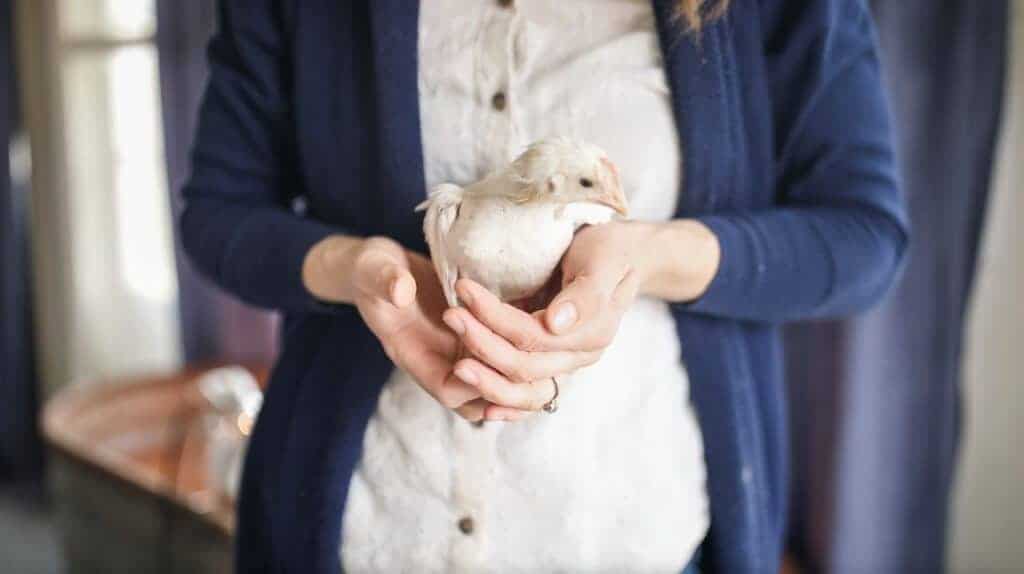
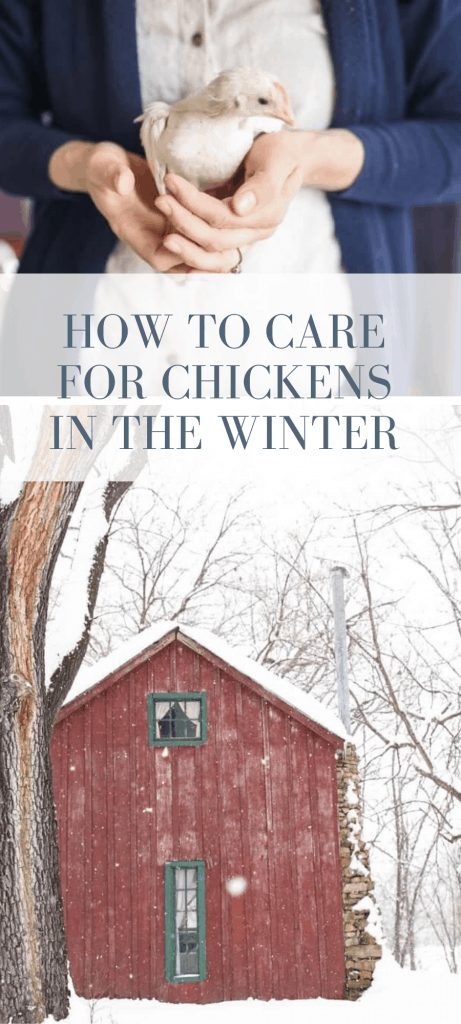
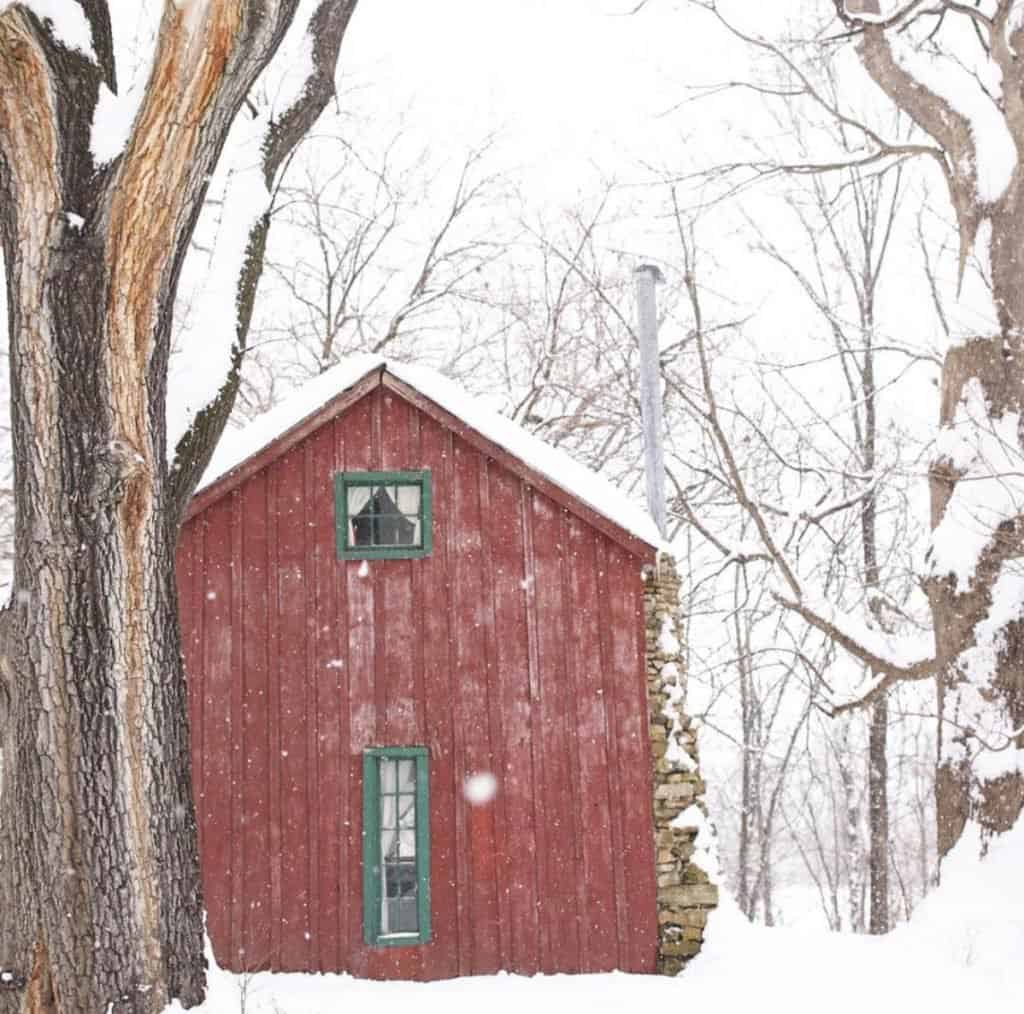
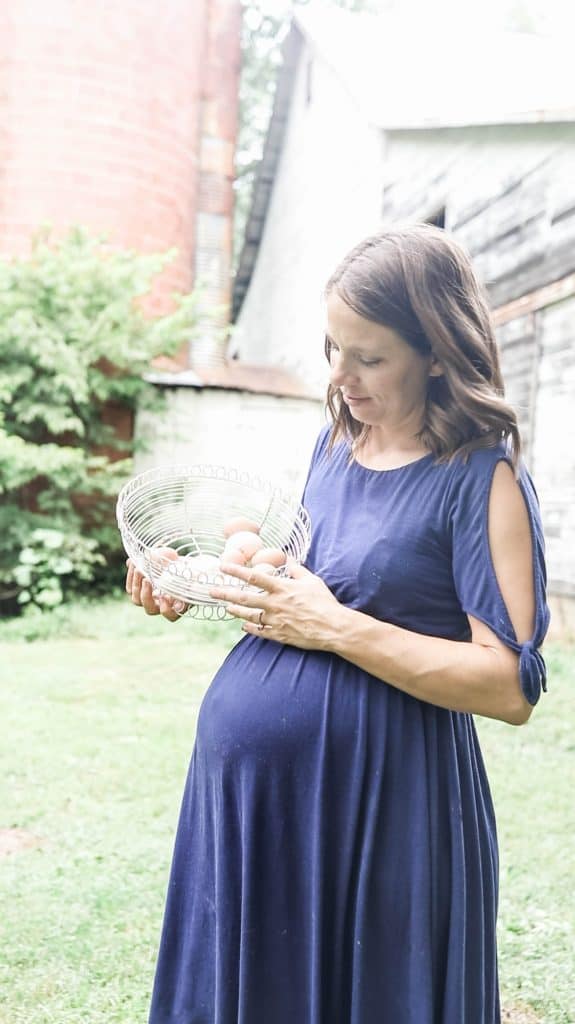
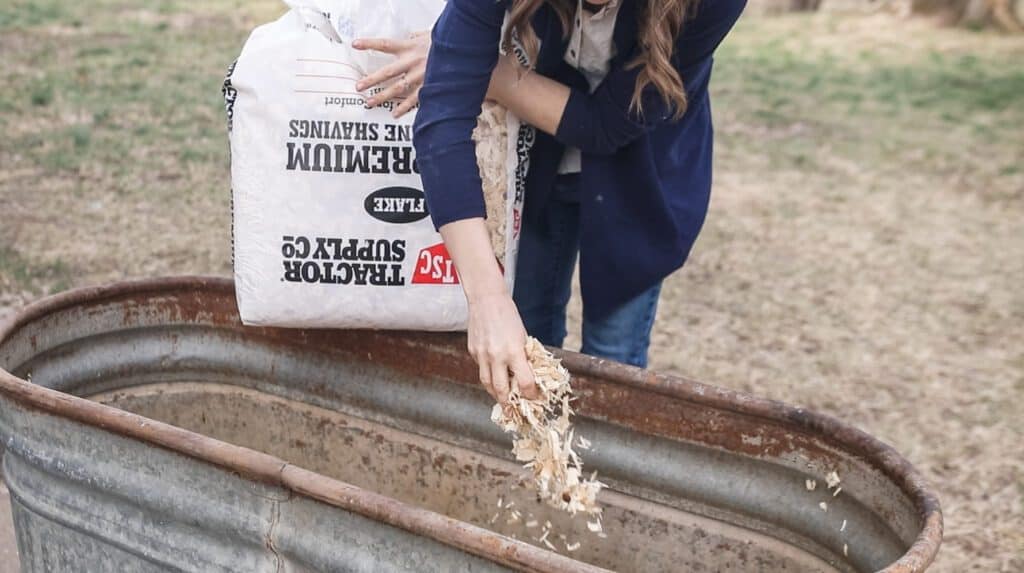
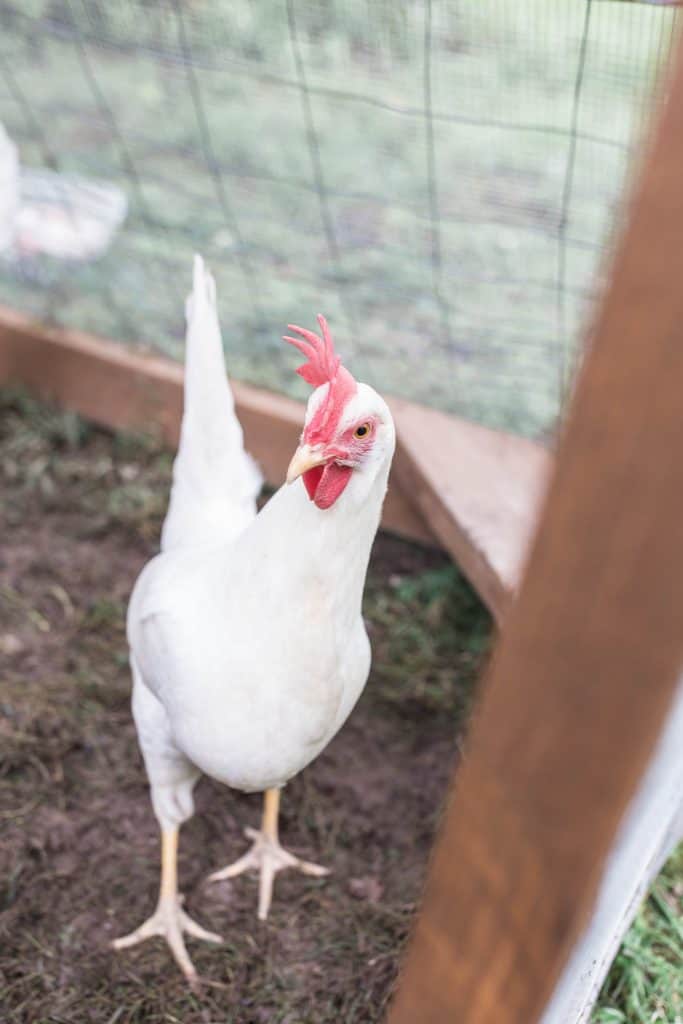
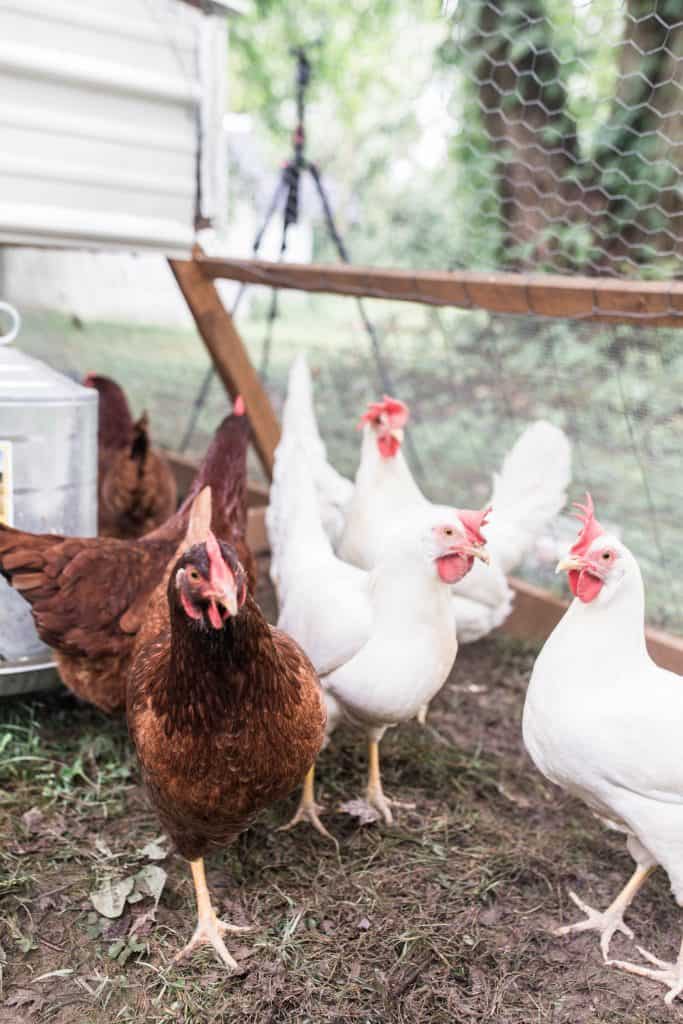
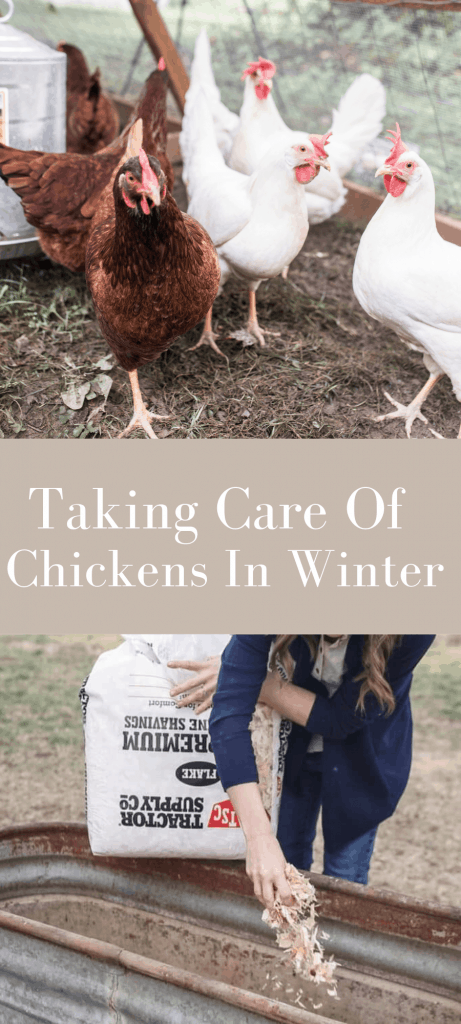
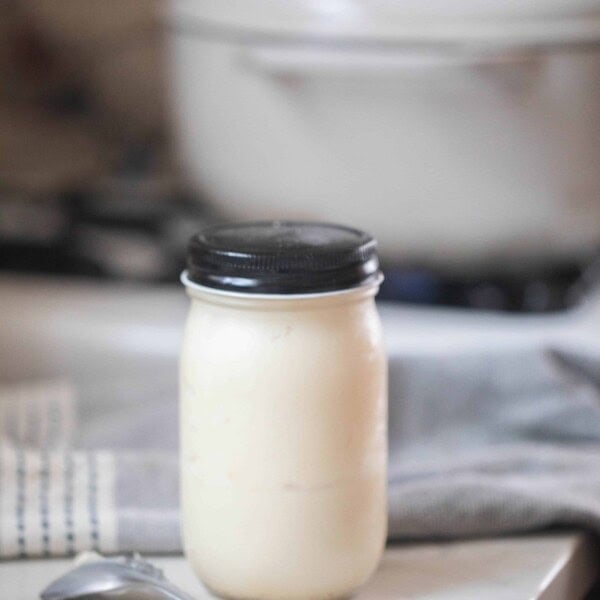
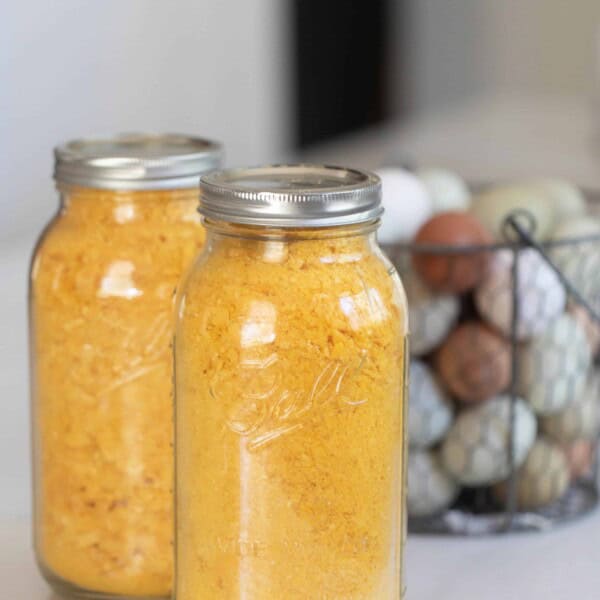
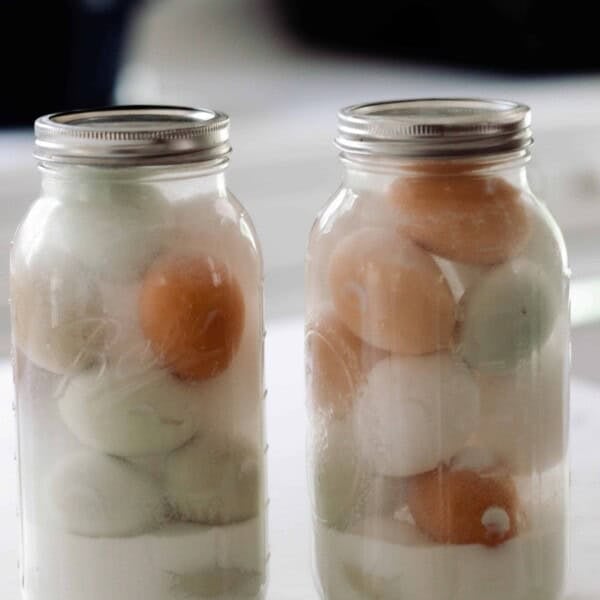
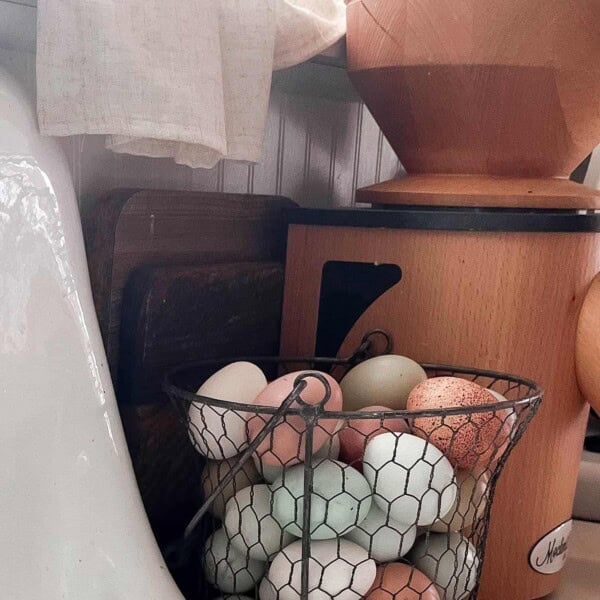






how do you keep winter eggs, ?still on the counter? thank you k.
I tried clicking on all your other posts and every one of them said the site could not be reached. Any other way to get those??
Love reading the emails you send, by the way.
Sorry about that! All links should be working now. Thanks for letting me know!
None of your links are working. Maybe it’s just me?
Sorry about that! All links should be working now. Thanks for letting me know!
Thanks for the helpful guide that lays out some good basics I noticed you’re recommending heat lamps, and I have read on other blogs and other sources of info like YouTube, etc that heat lamps are a fire hazard, that accidents happen all the time and coops, barns, even houses have caught fire due to them. I know they are commonly used and suggested. I’m thinking it is primarily a problem for source of heat during winter, but may still be ok for the baby chicks with close supervision and the precautions you mentioned in your blog? I hope to try raising chickens soon and have been trying to learn what I can.
We are hoping to get some chickens when we own our own property but we live in a very cold climate and I’ve always wondered how people keep their chickens alive when it’s in the negatives. I’ll bookmark this for later.